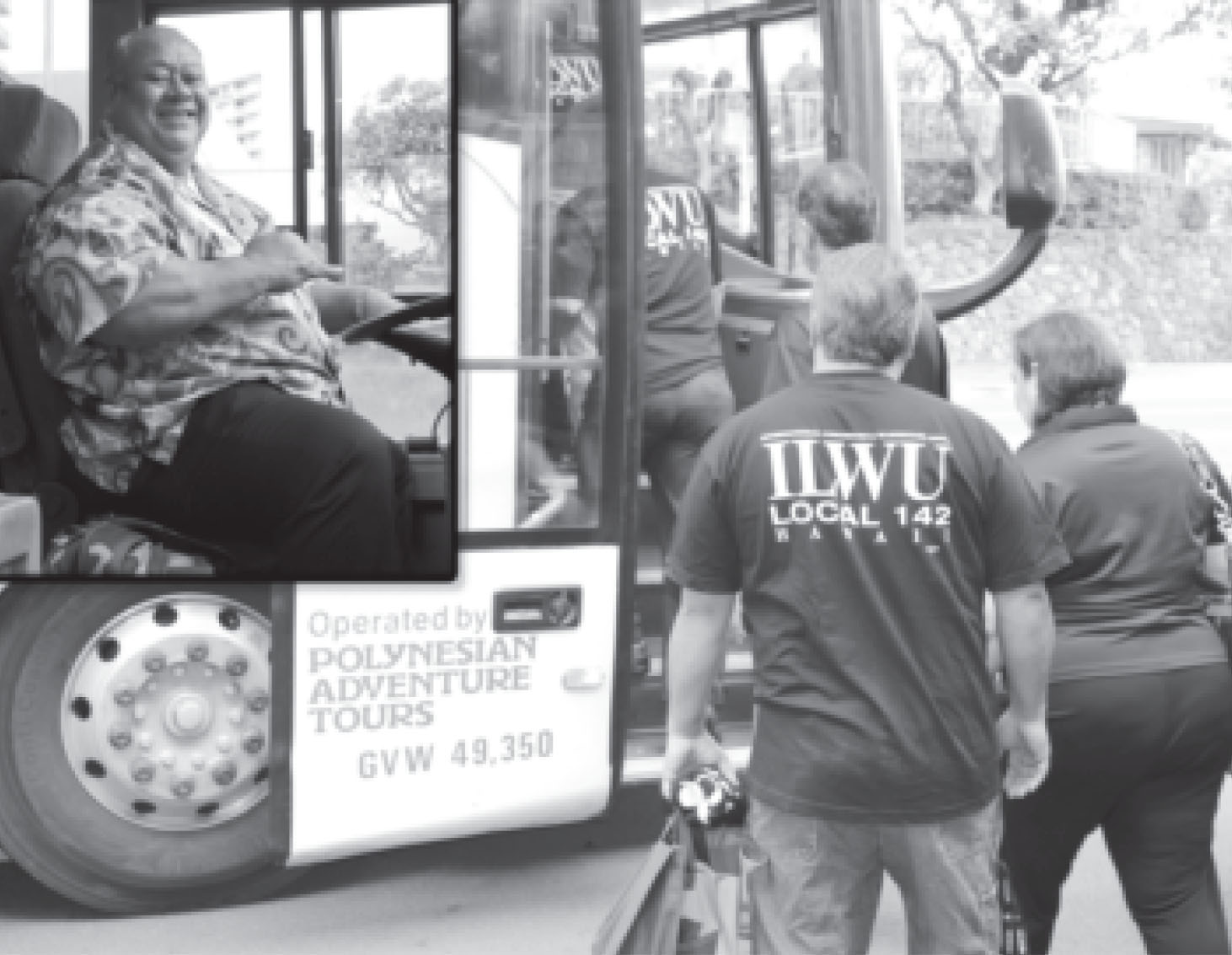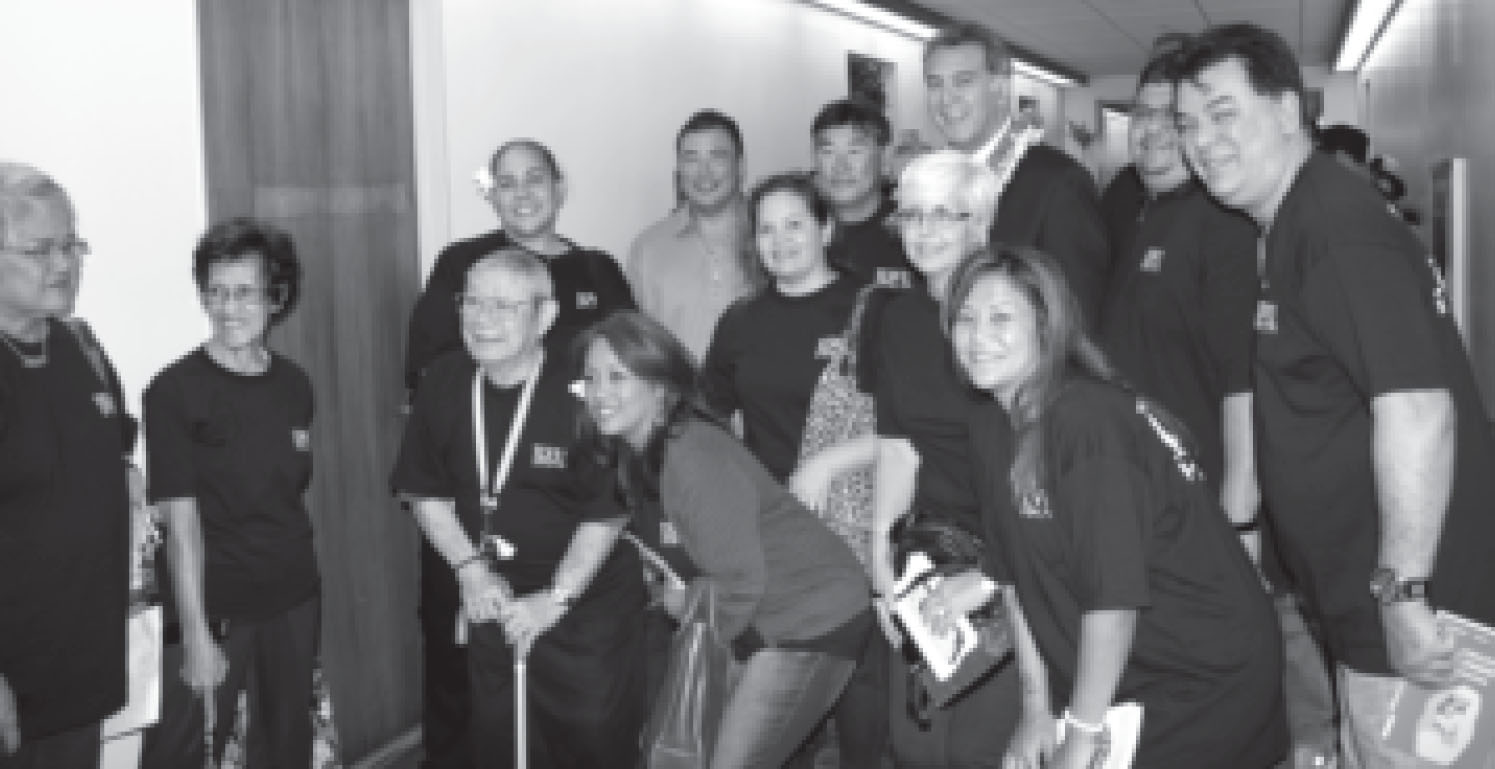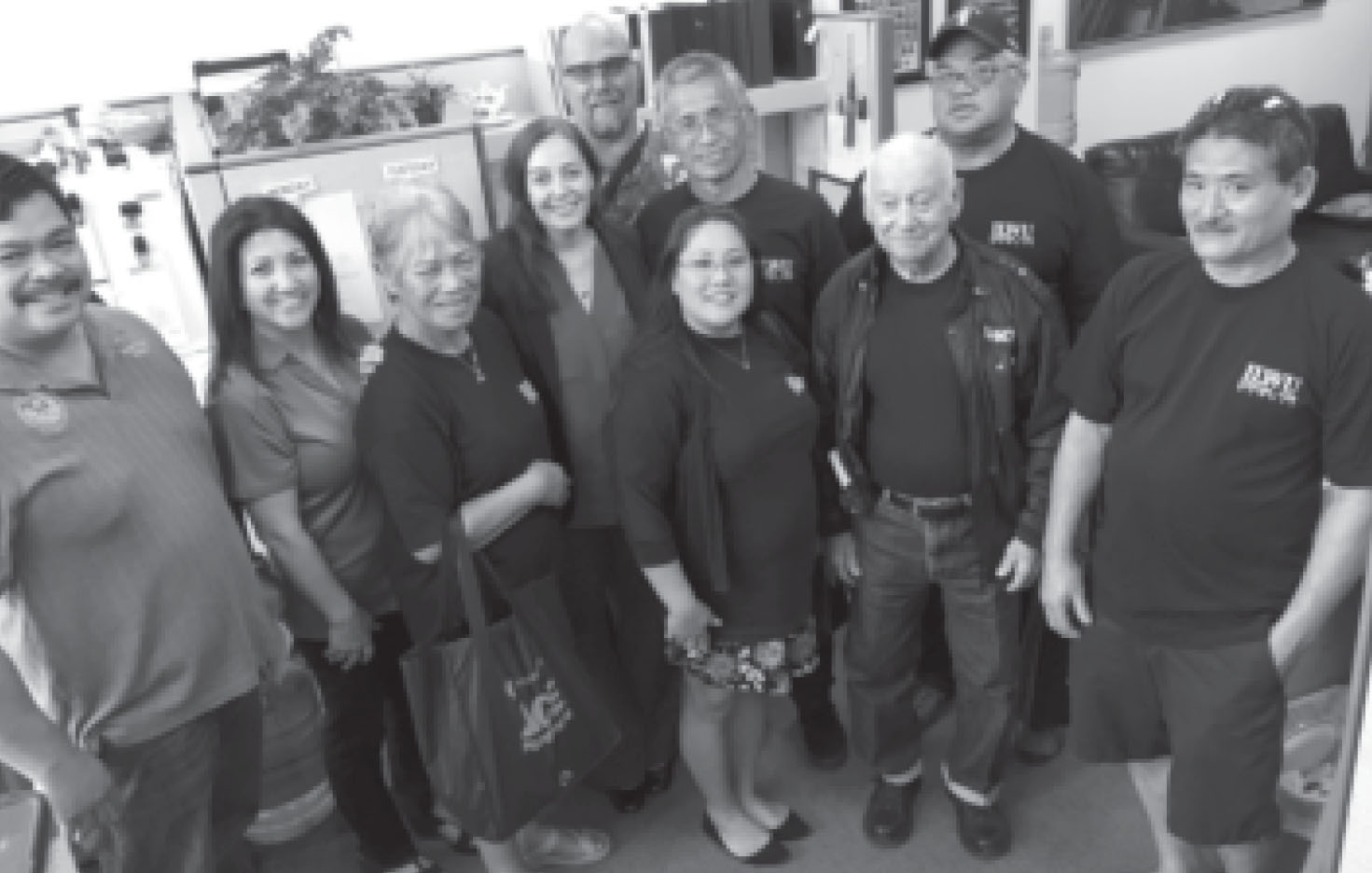The ILWU Local 142 is a diverse union, with members working in many different types of jobs in most major industries in Hawaii. Because of this diversity, and because the ILWU is concerned about issues that affect the entire community—there are more than a hundred points, or issues, covered by the ILWU’s legislative program.
The ILWU strongly supports all points in its legislative program, but will focus on this list of legislative priorities for the 28th Legislature.
All state lawmakers receive copies of both the ILWU’s legislative program and legislative priorities.
1. Support for legislation to provide needed assistance to laid off HC&S workers. Support for legislation to enable completion of HC&S final harvest.
2. Airport Improvements. Strong support for runway and terminal improvements at Kahului and Kona Airports to facilitate international travel that will increase revenue to the state.
3. Workers’ Compensation.
a. Suggest a closed claim study to determine the effect of delays in and denial of treatment and benefit payment to injured workers seeking to return to gainful employment.
b. Protect and enforce the “presumption clause” in the Workers’ Compensation law.
c. Require mutual agreement of the claimant and the insurer for selection of a physician to perform an Independent Medical Examination (IME). Establish a list of IME physicians to assist claimants in the selection of an IME physician. Provide that a rating for permanent disability shall not be performed at the same time as the IME.
d. Provide that injured workers receive Temporary Total Disability (TTD) payments and medical treatment while their claims are under investigation or on appeal. If compensability is later denied, the claimant shall not be liable for reimbursement of benefits earlier paid. Provide for timely payments when a claim is made, including meaningful penalties when payment is delayed or not made.
e. Provide that, if a workers’ compensation claim is initially denied then subsequently approved on appeal, the cost of the appeal shall be paid by the insurer.
f. Address the issue of physicians declining to accept injured workers as patients because of the “paperwork” and/or the inadequate medical fee schedule under the Workers’ Compensation law.
4. Harbor development. Continued support for development of harbors throughout the State of Hawaii, based on priorities established by the HHUG study. Priority should be given to the development and maintenance of facilities to sustain the growth of operations for manifested cargo without compromising safe working conditions for workers.
5. Senior programs. Strong support for programs to address the needs of the growing population of seniors and the disabled. Such programs include Kupuna Care, caregiver support, protection of the vulnerable elderly, resources for caregivers and care recipients, financing for long-term care, and home and community based care. Support for programs to educate the general public about long-term care needs and costs.
6. Hawaii Health Systems Corporation (HHSC). Continued support for adequate funding for HHSC to fulfill its mandated health care safety net function in rural and neighbor island communities and provide needed longterm care beds and services. Partial or full privatization should be considered only as a last resort, but employees must remain unionized with past service benefits protected.
Opening Day at the State Legislature
The first step to a strong political program is working to get legislators who understand and who will fight for our issues elected. A strong political program helps to provide the ILWU the best avenue to address members’ concerns. ILWU members and retirees visited their legislators during the opening day of the Hawaii State Legislature on January 20, 2016.

Local 142 members getting on a bus that transported them to the Hawaii State Capitol. The driver of bus was brother Tuki Ifopo (left), a member of the recently ILWU organized company, Polynesian Adventure Tours.

Senator Brickwood Galuteria with members and retirees representing Oahu Division. Front row (l-r): Dorothy Sakamoto, Esther Scharsh, Mel Yamamoto, Nadine Bukoski, Alanna Kuhn, and Alan Ah Yo. Back row (l-r): Kanani Hosaka, Business Agent Wilfred Chang, Denise Sherman, Bruce Nakahara, Deborah Gilther, Sen. Galuteria, and Anthony Hirota.

Hawaii Division delegation with Representative Nicole Lowen (l-r): Division Director Elmer Gorospe, Business Agent Corinna Salmo, Nani Kaeha, Rep. Lowen, Cristie Domondon, Gilbert De Motta, and Clyde Kihara. Back row (l-r): Business Agent George Martin, Frankie Pang & Roland Shimaoka, Jr.
